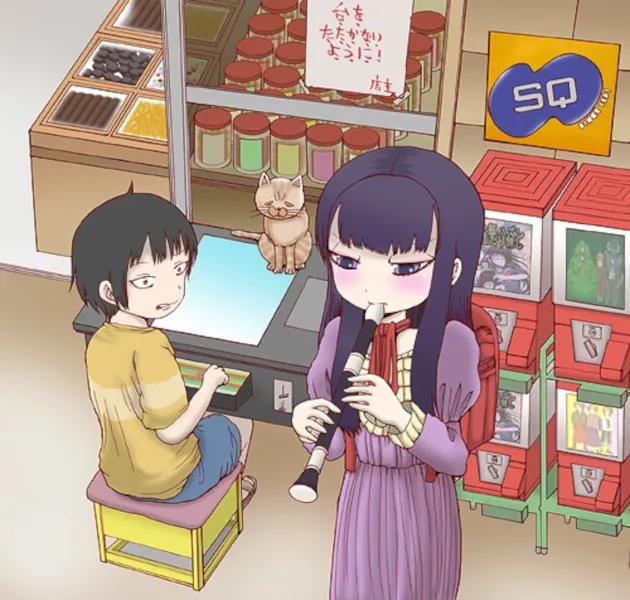Square Enix continues to regurgitate the music of historical successes, this time with recorders—and some other instruments, but mostly recorders. In fact, I dare say that within the next decade we’re likely to see arrangements featuring bongo drums, triangles, cabasas, and jugs with x’s on them. Regardless, here we are now with Cure SQ, an eleven-track album with three bonus discs putting us at a grand total of twenty tracks. While two-thirds of the album includes Final Fantasy tracks, Mitsuda’s Chrono Trigger, Shimomura’s LIVE A LIVE, Ito’s Romancing SaGa, and even Front Mission make their presence known.
Typically with arrangements I comment on the track choices and how well the instrumentation accompanies these inclusions. Here, what’s more important is how the choice of the recorder reflects these illustrious composers’ prized art. Far from the grand clanging of giant cymbals or smooth strings of ten violins, the humble recorder represents these works better or at least differently. What all of these selections include are heroes from simple beginnings. Thus, why shouldn’t the music communicate just that? The recorder aptly executes this emotion in several of these titles, but not all.
Entries like “Gau’s Theme,” “Yearnings of the Wind,” and the “Main Theme” seem almost crafted for the recorder. Of course, this doesn’t mean that any previous instrumentation is faulty, but it reminds me that we should be open-minded to alternative—seemingly silly—choices at times. Some may prefer these tunes with the classic piano or even chiptunes, but one can at least appreciate the choice here and recognize its suitably on an intellectual level. Though, as far as this reviewer’s concerned, this woodwind works on all levels.
Then again, that isn’t to say that the mighty recorder stands alone. Acoustics, lutes, and other soft instruments complement and sometimes lead each track. One such track is “Clash on the Big Bridge” that seems almost drum-driven at times. What I find fascinating about this track is that even though the recorder is less dominant here, the overall feel is still very much “recorder.” The woody, earthy tones still ably fit this track onto the album in tandem with the theme.
Another positive sign of an effective arrangement album is how well it communicates to the listener that games he hasn’t played have excellent music, as well. The initial track from Romancing SaGa is such an instance. Serving as a superb introduction for what to expect from this album, it also stands as one of the best tracks, if not the best. I also haven’t played Romancing SaGa, but I’m starting to think I should have. Or should.
If you balk at the idea of an entire CD full of recorder music, I ask that you reconsider. The fact that the instrument choice diverts from the commonly expected assortment of strings and electronic bleeps and bloops should encourage you to give this arrangement a gander. My only woe is how brief it is.
Bonus Discs
If you chance upon this album without the three Cure SQ “bonus discs,” you needn’t worry. The discs include tracks found on other arrangement albums and don’t fit with Cure SQ whatsoever. This, alone, doesn’t warrant criticism, but the distorted, experimental nature of these tracks jars and displeases.
Notable exceptions to this are “Schala’s Theme” (Chrono Trigger) and “Azure Sky” (Front Mission: Gun Hazard). While the Front Mission track isn’t to my taste, I can accept its quality and the comfort with which it carries itself—no need to stand out like a loon. “Schala’s Theme,” on the other hand, is well represented here, though likely included on another album.
These bonus discs are passable, and I’m not talking about letter grades here. I’m sure someone out there will appreciate the awkward take on classics, but to include tracks found on other albums is odd practice. Unless you’re the kind of collector that needs the whole thing, please don’t worry if you can’t find these discs, and certainly don’t pay more just to get them bundled with the otherwise exceptional Cure SQ core album.




